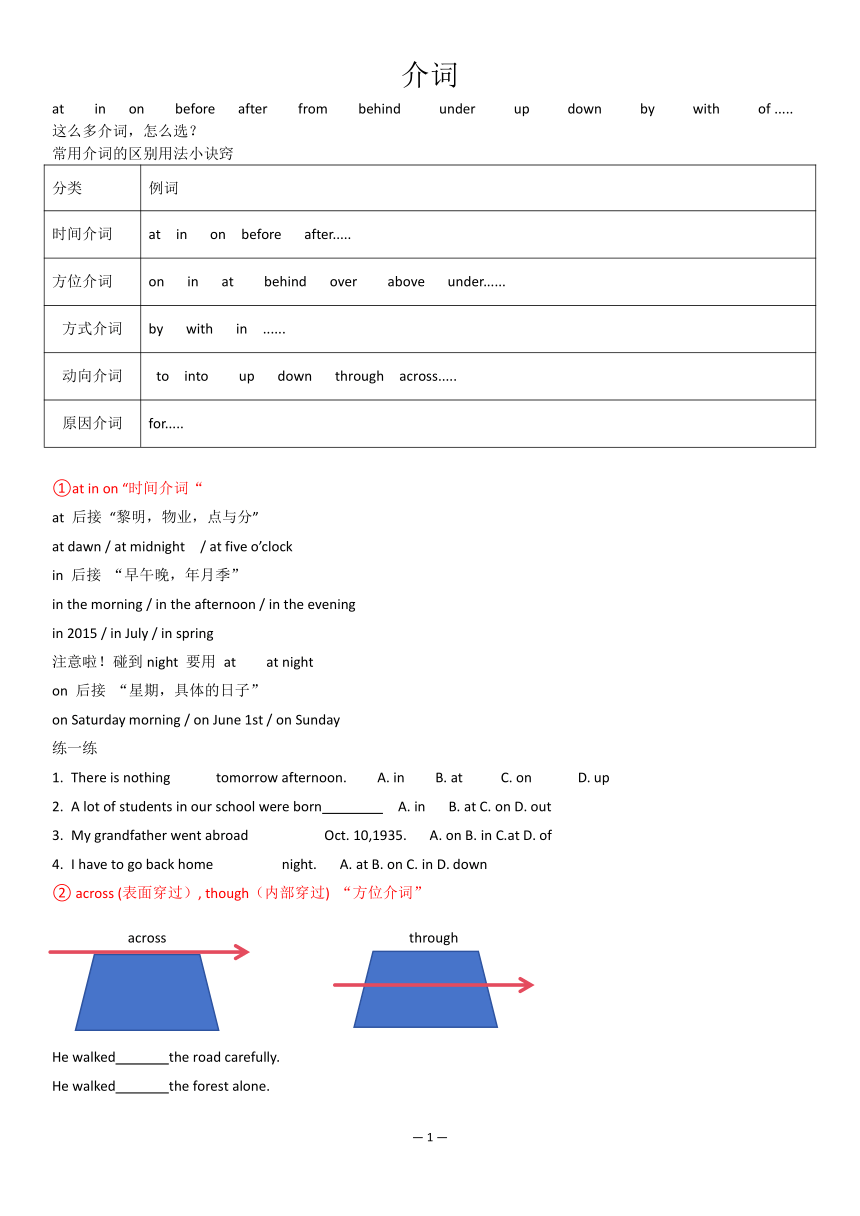
介词 at in on before after from behind under up down by with of ..... 这么多介词,怎么选? 常用介词的区别用法小诀窍 分类 例词 时间介词 at in on before after..... 方位介词 on in at behind over above under...... 方式介词 by with in ...... 动向介词 to into up down through across..... 原因介词 for..... ①at in on “时间介词“ at 后接 “黎明,物业,点与分” at dawn / at midnight / at five o’clock in 后接 “早午晚,年月季” in the morning / in the afternoon / in the evening in 2015 / in July / in spring 注意啦!碰到night 要用 at at night on 后接 “星期,具体的日子” on Saturday morning / on June 1st / on Sunday 练一练 There is nothing tomorrow afternoon. A. in B. at C. on D. up A lot of students in our school were born A. in B. at C. on D. out My grandfather went abroad Oct. 10,1935. A. on B. in C.at D. of I have to go back home night. A. at B. on C. in D. down ② across (表面穿过), though(内部穿过) “方位介词” across through He walked the road carefully. He walked the forest alone. in the tree PK on the tree There are some apples on the tree. There is a bird in the tree. 是否是树本身的一部分? 是--on 不是--in ③by with in “方式介词” Can you say“你好” English I often go to school bus. He cut an apple a knife. 方式介词by By+ 交通工具“乘坐或者使用交通工具” I go to school by bus / bike / car. I go to Beijing by plane / train / boat. by + doing “通过做....” You can get NO.1 working hard. 方式介词 in in + 语言“用...语言” Can you read this book Chinese. in + 方式方法“用....方式” You can succeed this way. 方式介词with with +工具“用...工具” We can write a pen. with + 身体器官 We can see our eyes. We can smell our nose. We can hear our ears. 用适当的介词填空 I had my breakfast seven o’clock. My father will go back home Sunday. I am the hospital now. She always goes to school bike. You can ask me help!
~~ 您好,已阅读到文档的结尾了 ~~